December 13, 2024
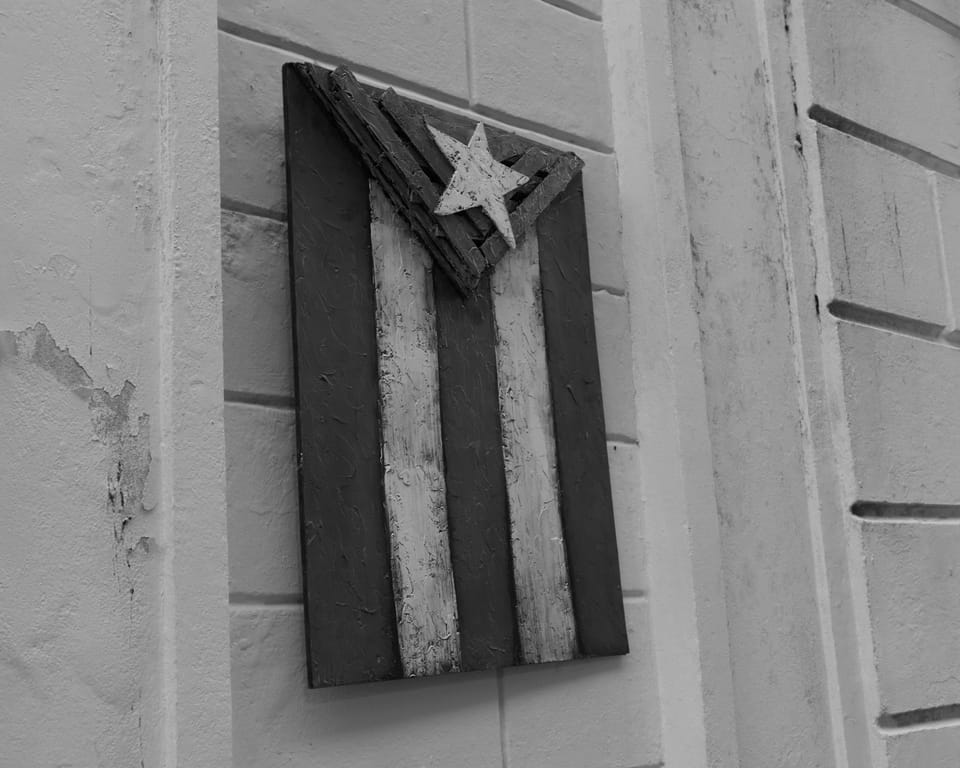
A quick trip to Puerto Rico
This week my partner and I went to San Juan, Puerto Rico for just 48 hours. She had work to do and I wanted to learn as much about what its like to be in Puerto Rico as possible in such a short amount of time.
I knew going in that Puerto Rico, which was first made a colony during Columbus' lifetime in the late 15th century, remains a colony to this day, though the United States calls it a "territory."
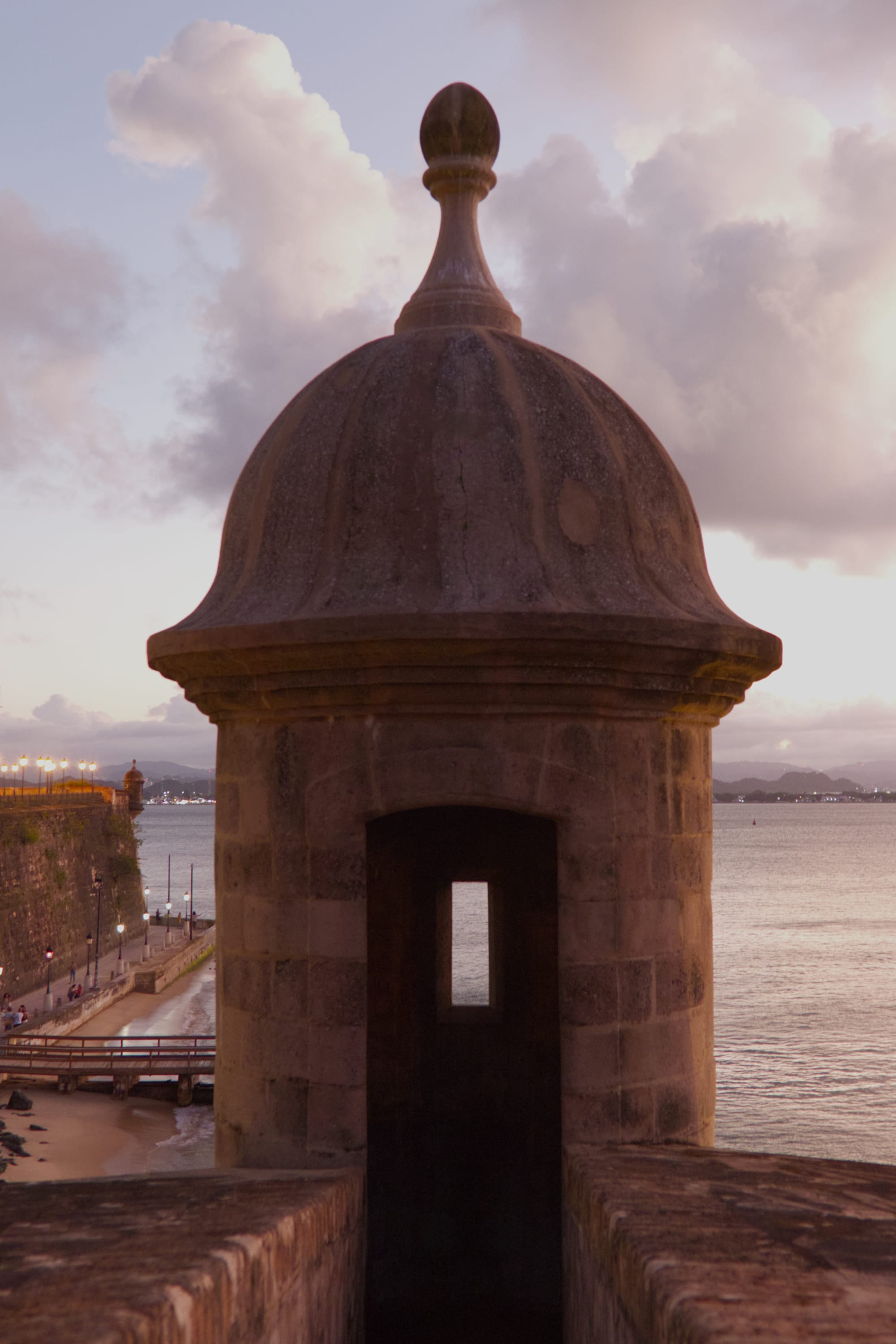
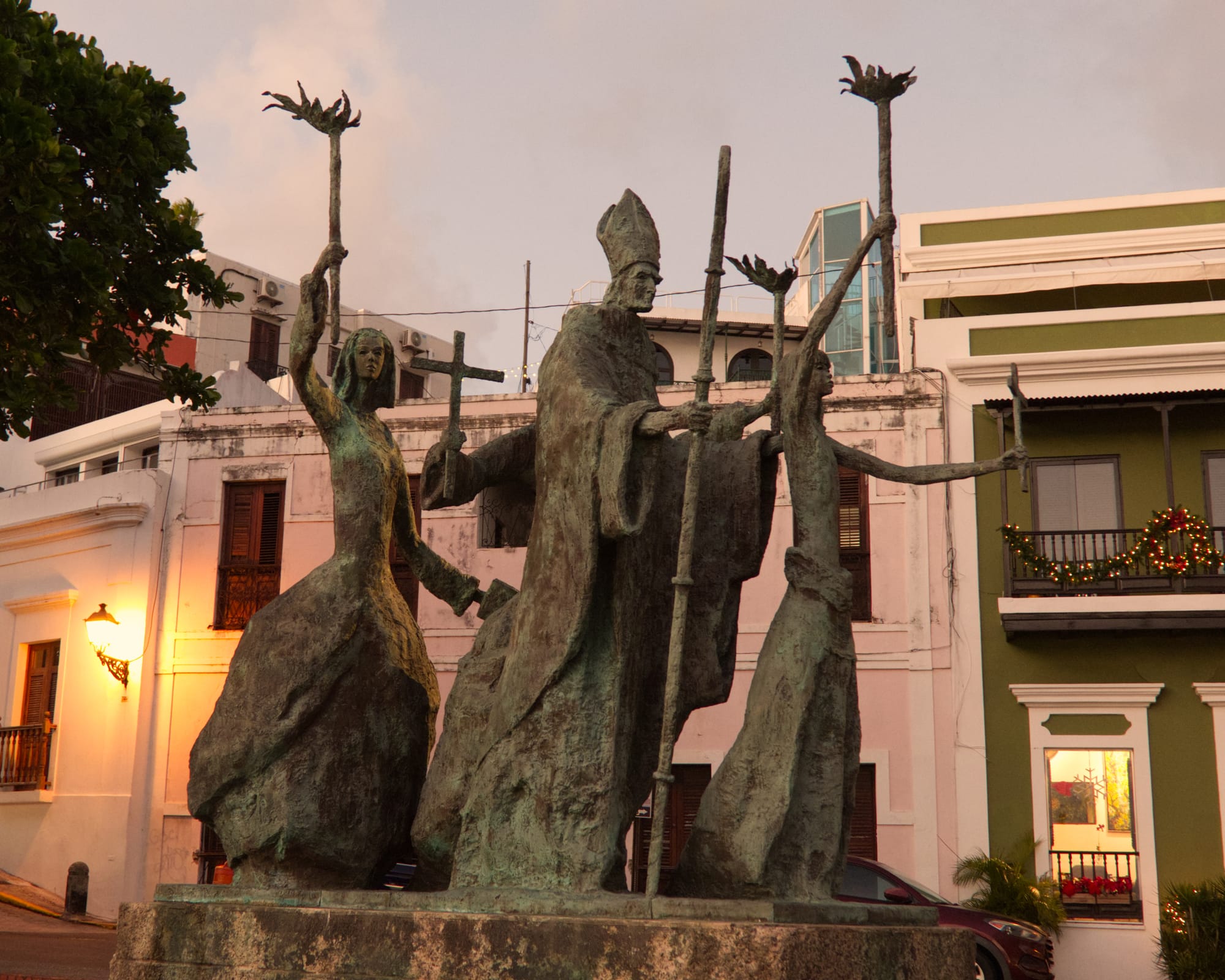
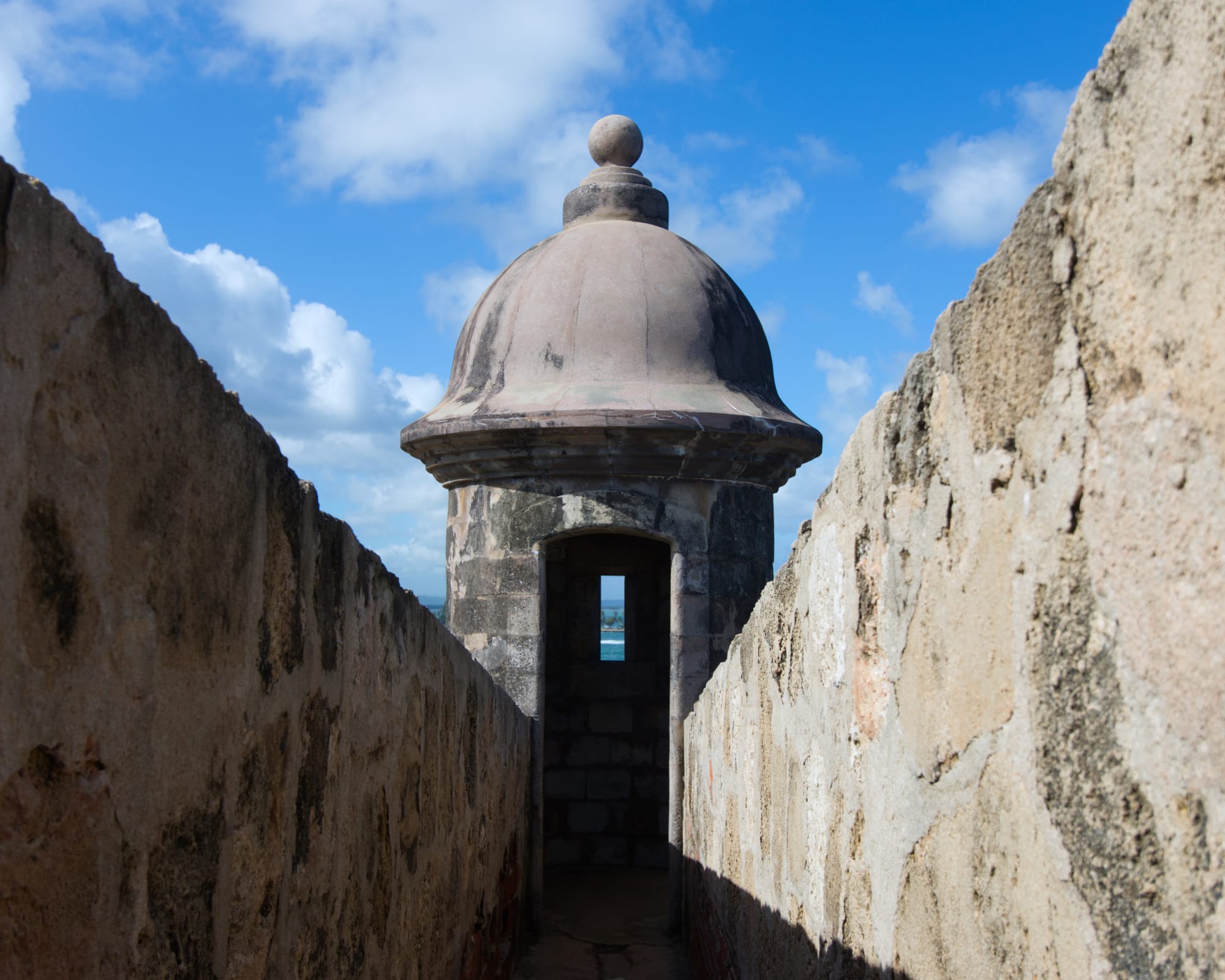
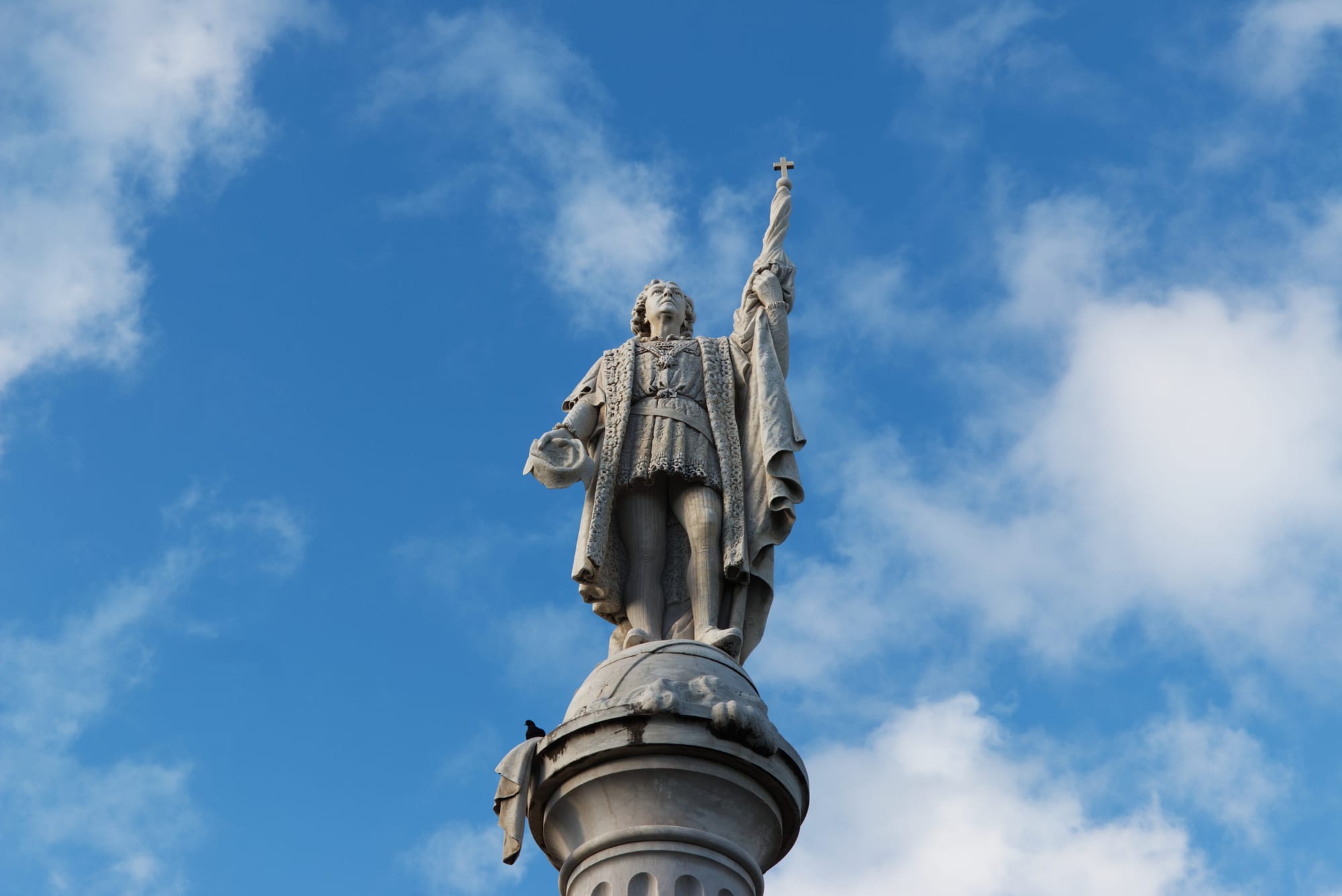
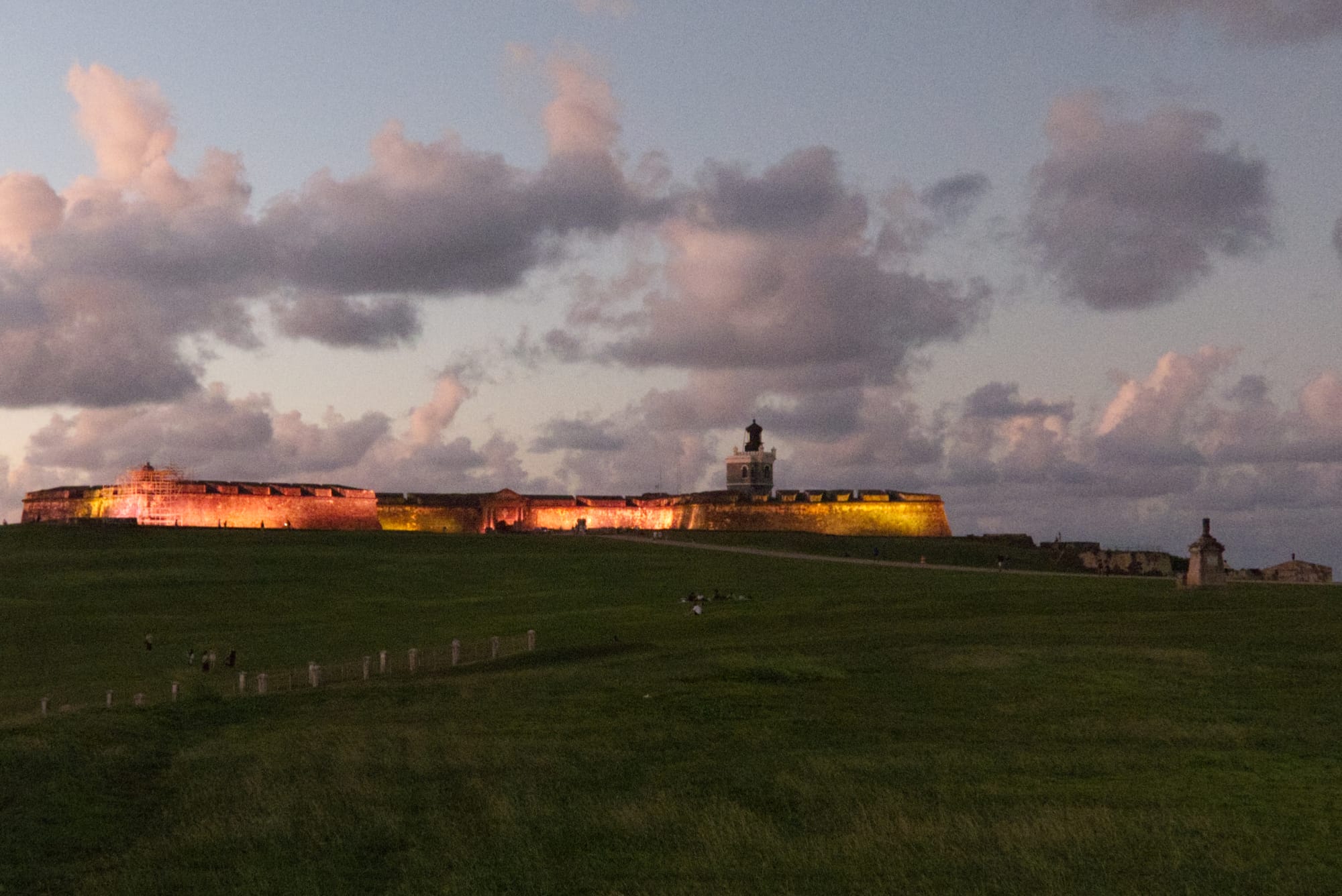
Two sentry posts overlooking the ocean and two statues of colonizers and the Fortress San Felipe del Morro (one of two fortresses in the old town) all in Old San Juan, Puerto Rico. Photo Credit Philip Cardella Copyright 2024
After invading Puerto Rico in 1898, as Puerto Ricans themselves were on the cusp of overthrowing their Spanish colonizers, the United States initially refused to grant Puerto Ricans citizenship. The same Supreme Court that gave us "Separate but equal" and Jim Crow also ruled, in an unprecedented decision (0r rather set of decisions), that for the first time, people living in American territories had no pathway to American Citizenship.
US Congress decided to grant "partial" citizenship to Puerto Ricans about 20 years later--when it wanted Puerto Ricans to fight for us in The Great War. To this day, Puerto Ricans do not enjoy full American Citizenship--having no right to vote in Presidential elections, for example, while living in the island territory.
In his last year in office, President Obama signed the Puerto Rico Oversight, Management, and Economic Stability Act, also known as PROMESA. The bill's stated justification was to assist Puerto Rico with its monstrous debt—debt that was primarily forced on it by the mainland, acts of Congress, and American businesses. However, with provisions such as reducing the island's minimum wage from the Federal Minimum Wage to $4.24, about three dollars more than the mainland's paltry mandate, Puerto Ricans were outraged and "in mourning," hence the black flag.
Still, San Juan, or at least the Old San Juan tourist district and the area around The University of Puerto Rico Rio Piedras, were friendly, alive and vibrant.
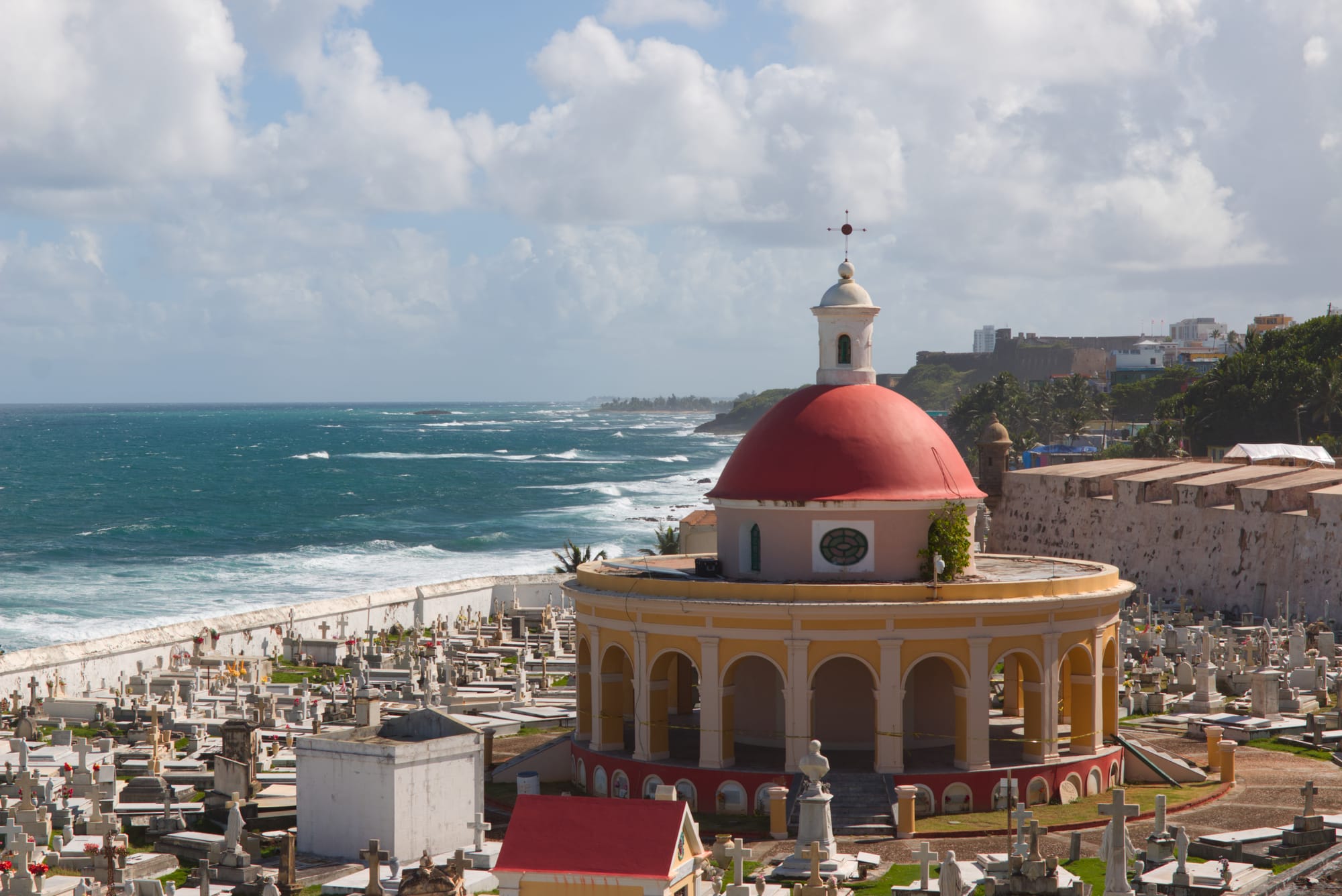

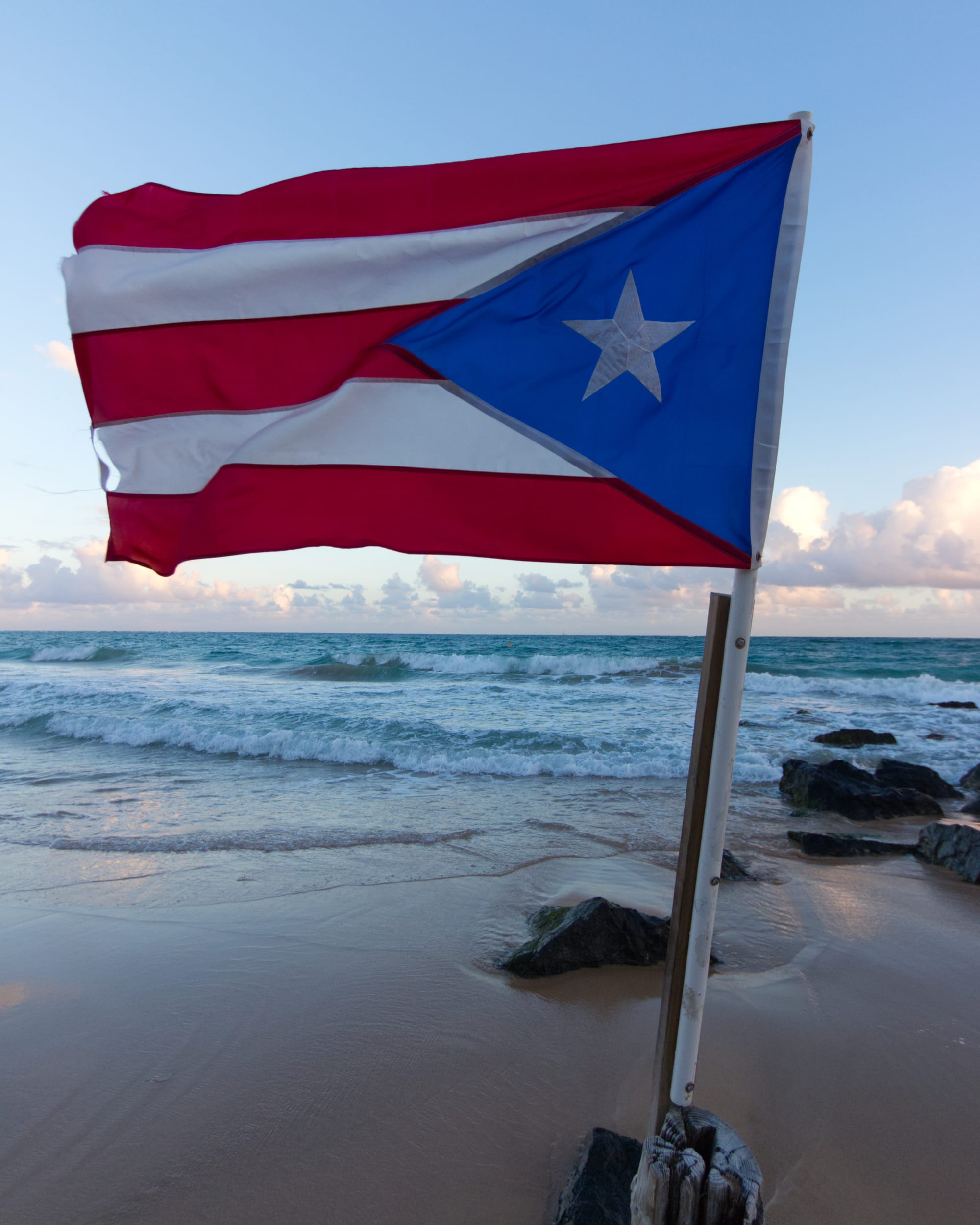


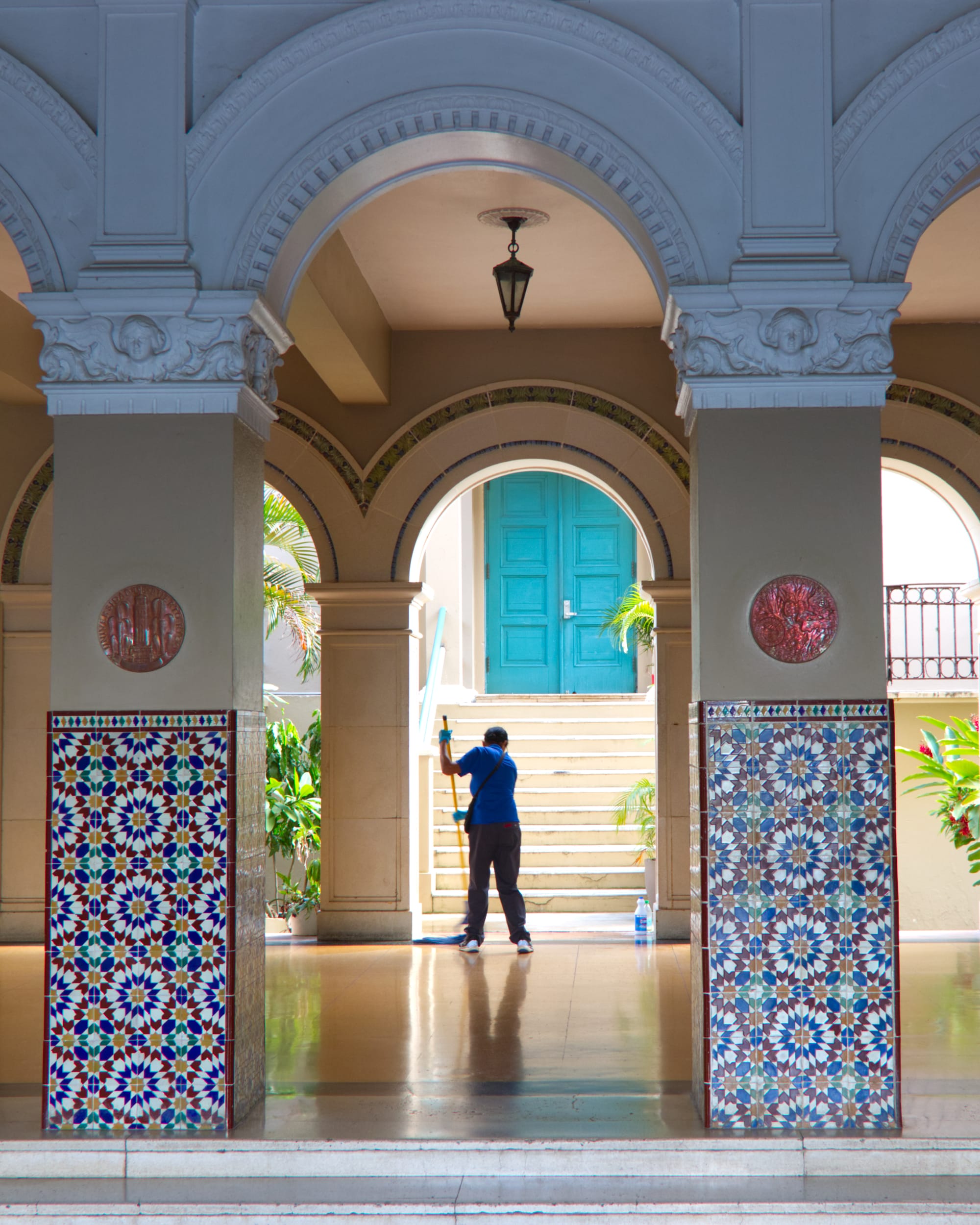
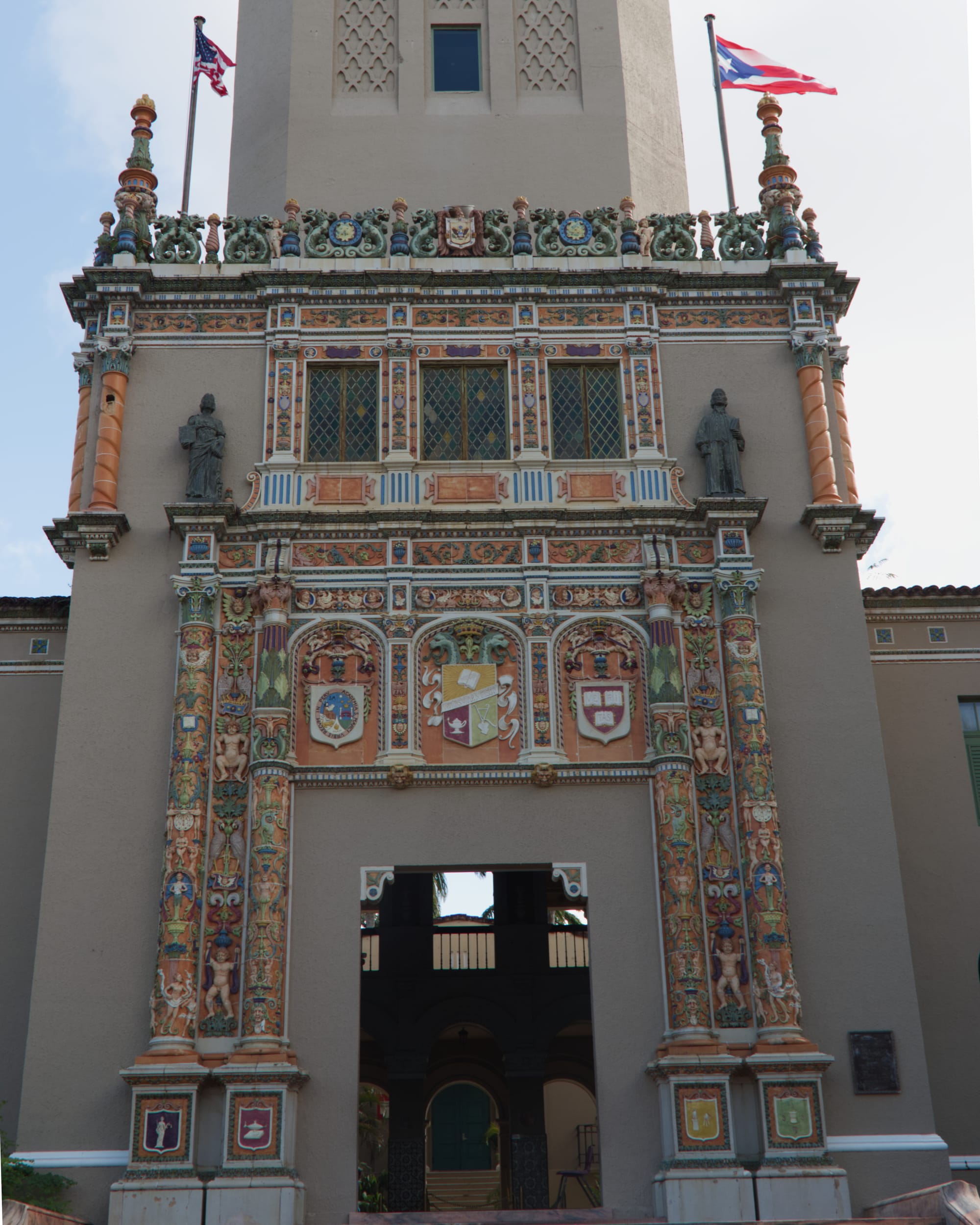
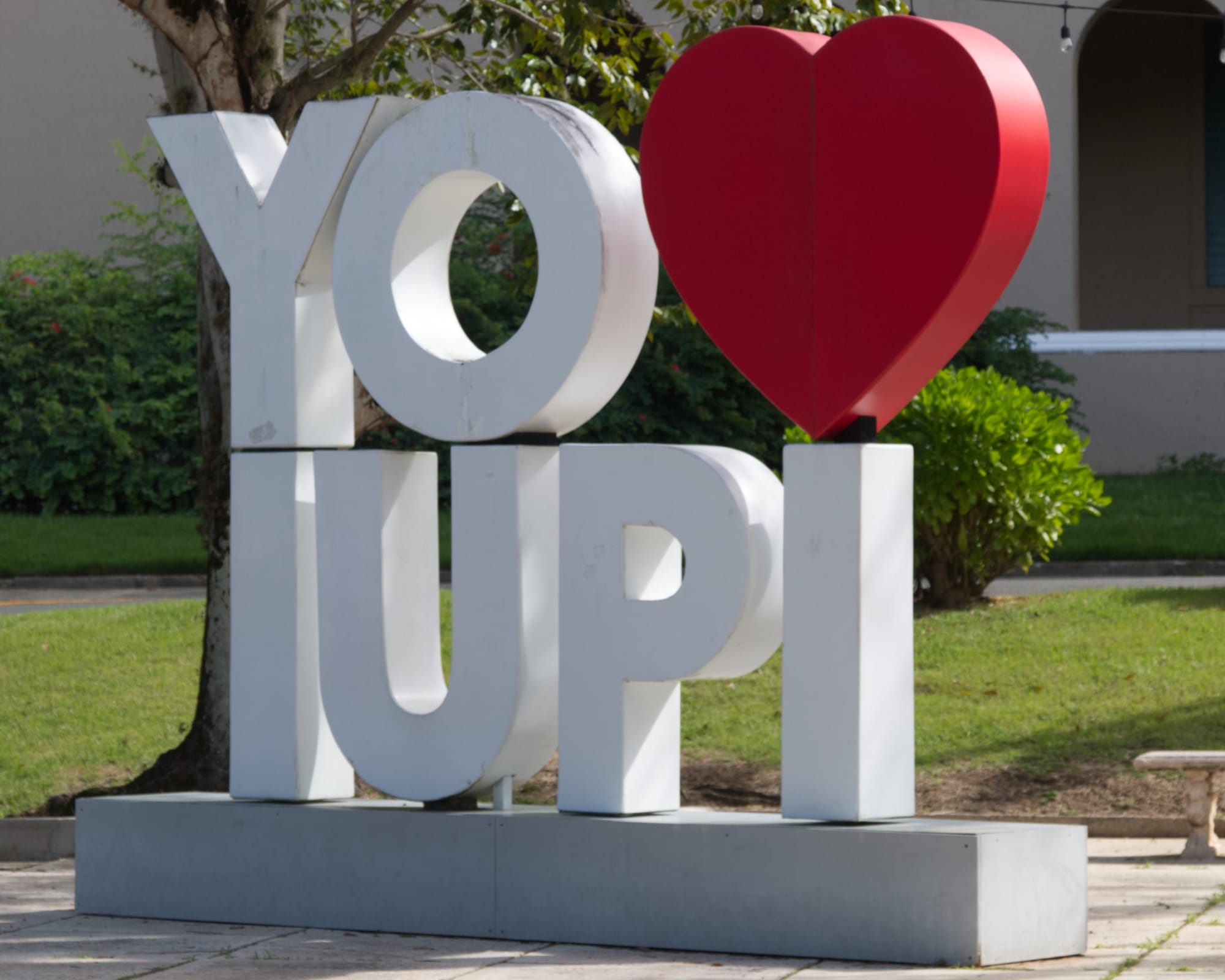
A cemetery next to the ocean and beside Castillo de San Felipe del Morro, a mural in a coffee shop that only sells locally sourced beans where the growers, roasters and baristas are all owners of the company, a Puerto Rican flag on a sandy beach with some rocks, a pina colada, a dog on a table with food, a custodian mops the floor of the main building of University of Puerto Rico Rio Piedras, the front entrance of UofPR (and you can see the hallway the person is mopping inside) and a statue in front to the big building on campus. All photos Philip Cardella Copyright 2024
For "A crucial, clear-eyed accounting of Puerto Rico's 122 years as a colony of the US," I highly recommend journalist Ed Morales' Fantasy Island: Colonialism, Exploitation, and the Betrayal of Puerto Rico.
But what does any of this have to do with Florida? Just a two-hour flight from South Florida or a brief stint in a ship on the waves, Puerto Rico has long been tied to Florida, culturally and historically. Into the 19th century, both places were part of the Spanish empire, after all. Puerto Ricans come and go to Florida, especially South Florida, regularly, and the exploitation of Puerto Ricans in myriad ways (see Ed Morales' book) impacted not only American citizens in Puerto Rico but their kin in Miami, Ft. Lauderdale, and beyond (including New York City).
Back in Miami
My spouse and I returned quickly to Florida because we had meetings in South Florida. I met with a group called GI 305 whose
mission is to foster social and economic enfranchisement for the residents and workforce of Miami, Florida. We achieve this through the establishment of a guaranteed income program and organizing initiatives that promote community self-determination.
We envision a Miami-Dade County where every resident enjoys economic stability and agency. The right to afford basic needs, stay in our neighborhoods, and shape our future is guaranteed.
The founder I met with was passionate and impressive in their knowledge of issues facing Miamians and the proven solution that is guaranteed income. Similar to Universal Basic Income, which would provide a baseline source of income to all residents in a city, state or country, guaranteed income provides this to some residents. In the case of GI 305's pilot program, this was a group of people in zip codes with extremely cost-burdened residents. If you have questions, a great place to start is GI 305's "Why Guaranteed Income?" I came away impressed and eager to learn more about this organization.
What I'm reading
I think it's time to start sharing what I'm reading. I get distracted and tend to try to read multiple things at once. So, no, I'm not going to finish all of these this week. But I'm going to try to read some of each of them!
This Week's Journalism
Public Notice, a news outlet created by reporter Aaron Rupar, consistently delivers deep(ish) dives on pressing political news in the States. This week, a piece on a return to the Hoover FBI Rupar published with his frequent collaborator, Thor Benson, struck me, and I thought I'd recommend it here.
Fiction Books
Swamplandia by Karen Russell NEW YORK TIMES BESTSELLER - PULITZER PRIZE FINALIST - "The bravely imagined, wildly acclaimed debut novel from the author of Vampires in the Lemon Grove--about a thirteen-year-old girl who sets out on a mission through magical swamps to save her family." Set in South Florida, I get many jokes I know I wouldn't have before!
Space Opera by Catheryn Valentine. "2019 HUGO AWARD FINALIST, BEST NOVEL The Hitchhiker's Guide to the Galaxy meets the joy and glamour of Eurovision in bestselling author Catherynne M. Valente's science fiction spectacle, where sentient races compete for glory in a galactic musical contest...and the stakes are as high as the fate of planet Earth." I "know" this author from Mastodon. The book is hilarious.
Murder at Monticello: A Mrs. Murphy Mystery by Rita Mae Brown and Sneaky Pie Brown. "The most popular citizen of Virginia has been dead for nearly 170 years. That hasn't stopped the good people of tiny Crozet, Virginia, from taking pride in every aspect of Thomas Jefferson's life. But when an archaeological dig of the slave quarters at Jefferson's home, Monticello, uncovers a shocking secret, emotions in Crozet run high—dangerously high." I'm reading this series with my mom, but she's gotten ahead of me.
Non-Fiction Books
Appalachian Reckoning: A Region Responds to Hillbilly Elegy "Anthony Harkins and Meridith McCarroll (editors). 2020 American Book Award winner, Walter & Lillian Lowenfels Criticism Award, Weatherford Award winner, nonfiction. With hundreds of thousands of copies sold [and] a Ron Howard movie ... What about Hillbilly Elegy accounts for this explosion of interest during this period of political turmoil? Why have its ideas raised so much controversy? And how can debates about the book catalyze new, more inclusive political agendas for the region's future? Appalachian Reckoning is a retort, at turns rigorous, critical, angry, and hopeful, to the long shadow Hillbilly Elegy has cast over the region and its imagining. But it also moves beyond Hillbilly Elegy to allow Appalachians from varied backgrounds to tell their own diverse and complex stories through an imaginative blend of scholarship, prose, poetry, and photography." With the book's author now Vice President-Elect, this book is still proving timely, even though it is seven years old. As a collection of essays by many scholars, the opinions in it are a wide range: Some scholars even liked Hillbilly Elegy. That said, most of the scholars found Vance's work at times derivative from stereotypes, self-serving, and largely inaccurate descriptions of the multifaceted cultures in Appalachia and its diaspora.
A Second Chance by Judge Frederic Block "“Judge Frederic Block’s A Second Chance tells one of the most neglected stories in our criminal justice system—what happens to criminal defendants after they are sentenced to prison. The judge uses his unique perspective to tell several real stories from his own courtroom, all page-turners, about how he tried to strike the right balance. These are tough calls—and it’s a tough, smart book.” —Jeffrey Toobin, author of Homegrown: Timothy McVeigh and the Rise of Right Wing Extremism." Given President Biden's unprecedented use of his pardon and commutation power this book is particularly timely. While the President has the power to pardon and commute the sentences of convicted persons, Federal judges have a fair amount of similar power thanks to a law passed just a few years ago. Judge Block argues that this law, which allows for a second chance for judges to examine cases, should be expanded to state courts.
Follow Me to the Fediverse (encore post, now with more links!)
Think social media like X, Xitter, BlueSky, Threads, only not owned by CryptoBros, Would-be dictators, TechBois, or anyone else! The fediverse comprises thousands of little Twitter-like things (called instances) that are privately controlled, and users can come and go as they please. X or Xitter, is owned by the Saudis and their little democracy-murdering apartheid lover Elon Musk; Threads is owned by democracy-hating Meta (Facebook) and Mark Zuckerberg; BlueSky was started inside of Twitter, broke off when Musk bought it and is funded by shady investment groups, the known ones being mostly cryptocurrency ponzi+ schemes. It is run by a CEO whose primary experience is technical work for...cryptocurrencies. BlueSky says it won't be a crypto-centric thing. Also, cable TV said it wouldn't have commercials until it did.
Here is a page to help you get started. There's a learning curve at first and then it's intuitive.
The fediverse: all the assholes, none of the fascist rule.


